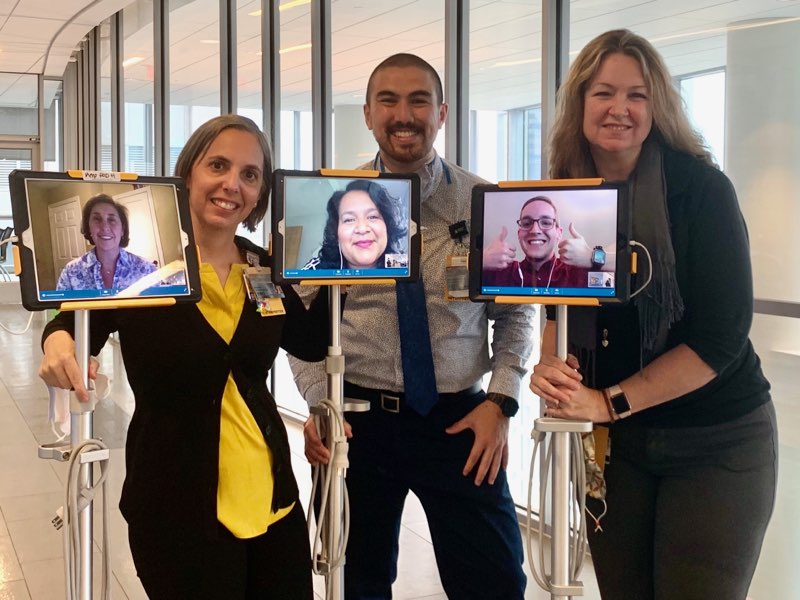Wright Center COVID trials expanded with the help of medical language services

adapted from a VCU Health news story
Clara Dutari is bilingual, interpreting for Spanish-speaking patients at VCU Health. But she doesn’t just convert words, like a Spanish-English dictionary. She provides context, nuance and intuition to improve communication.
One of six interpreters and translators at VCU Medical Center, Dutari sometimes sees patients nodding as their doctor speaks, but she can tell just by looking that the patients don’t understand. She questions their comprehension and fills in the gaps. On the other side of the coin, when interpreting from Spanish to English, Dutari inserts any cultural nuance reflected in the patients’ dialect to ensure their doctor’s complete understanding.
With COVID-19 disproportionately affecting the Latinx community, more Spanish speakers with limited English are seeking care at VCU Health. At the same time, visitor restrictions have limited their ability to bring English-speaking friends or relatives with them. VCU Health interpreters and translators are working longer workdays to assist VCU Health’s increasing number of Spanish-speaking patients.
Interpreters now average four to six hours a day of non-stop interpreting, accompanying patients through their health care journey. VCU Health’s full-time translator averages 45 to 60 documents a month, with each document anywhere between 80 to 200 pages.
The language services team makes it possible for non-English speakers to join COVID-19 clinical trials.
Clinical trials give patients choices, especially important in the midst of a new virus with few approved treatments. If there are no interpreters and translators to ensure that a non-English-speaking patient understands the risks and benefits of a trial, the patient doesn’t have this option.
Translators like Pilar Garcia bring that option to Latinx patients by translating pages of important documents, such as consent forms and discharge instructions. And interpreters like Dutari ensure that clinical trial investigators and patients are on the same page – literally and figuratively.
“The participation of diverse populations improves the reliability of study results and the health advancement that clinical trials bring to all patient care,” says Antonio Abbate, M.D., Ph.D., who oversees multiple trials at VCU Health. “The interpreters and translators are essential to our ability to expand access to the trials. They’ve really gone above and beyond during the pandemic.”
As an associate director at the C. Kenneth and Dianne Wright Center for Clinical and Translational Research, Abbate is part of a committee that evaluates and prioritizes potential drug treatments for COVID-19 and is the principal investigator of one of the clinical trials.
“It’s especially vital to get everything right when you interpret and translate for trials,” says Dutari. “We’re not merely repeating. We work closely with the study team to convey the appropriate message and work as a team. I think it makes the team better.”
The Wright Center informatics team, which helps clinical trials study teams manage data, reports that 13 percent of COVID-19 clinical trials participants identify as Hispanic or Latinx — some of whom are Spanish speakers or of limited-English proficiency.
Dutari says most patients immediately grasp the importance of participation — not just for themselves but for the scientific knowledge that the trials will bring to all patients affected by COVID-19.
Despite the increased pressures, workload and risk of working on the frontline, members of the medical interpreter and translation team enjoy their job.
“It’s been every day something new,” says Dutari. “I love the challenge and the creativity it brings out of us. The whole team has such a great passion for helping patients, and that’s what drives us the most.”
